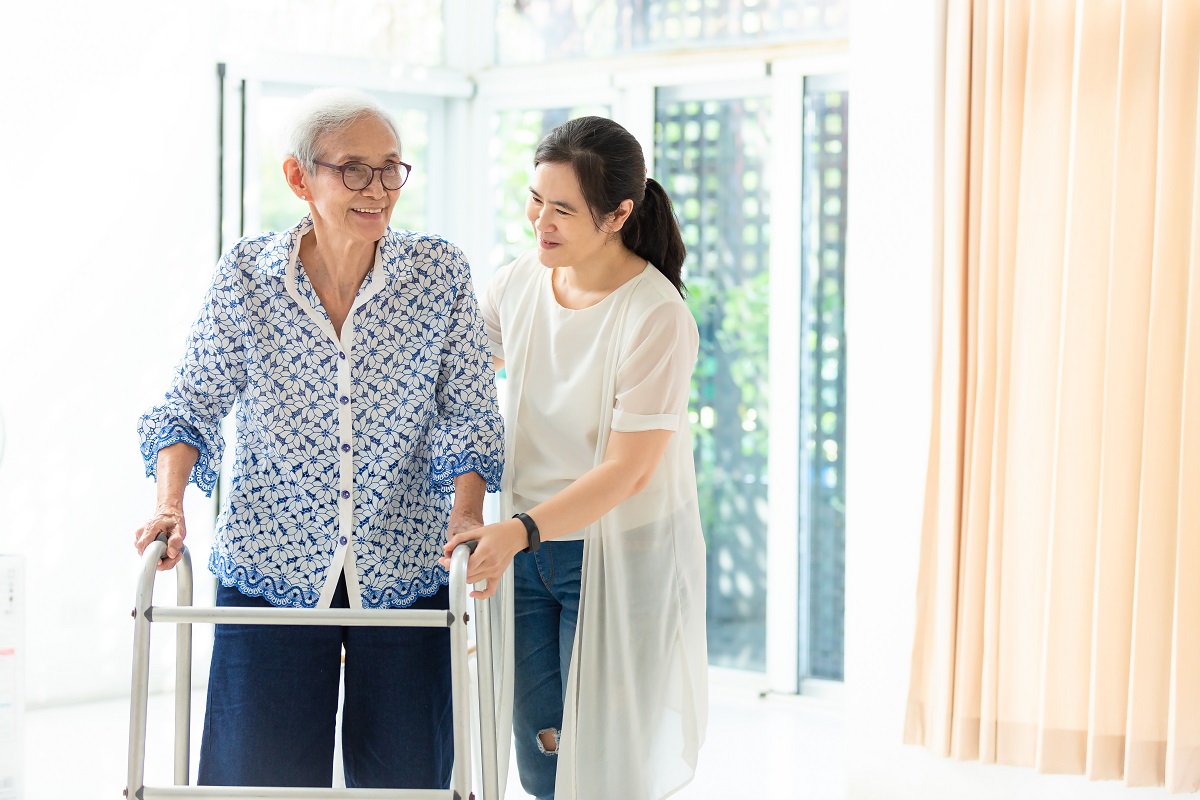Living alone when you have dementia
You’re bound to worry about a loved one living on their own if they have dementia. But there are lots of ways to help them stay as safe and happy as possible…
Being diagnosed with dementia doesn’t mean you have to give up your independence. In fact, it might be far better for your loved one to live in their own home for as long as possible. A home environment will feel safe and familiar to them, and they’ll know how to work the washing machine and cooker because they’ve been doing it for decades. Suddenly uprooting them to come and live with you, or move into a care home could be far more distressing, and harder for them to manage, than staying where they are.
Did you know?
85 per cent of people would want to stay living at home for as long as possible if diagnosed with dementia. Yet a third of the general public wouldn’t know where to find information about how to make their home suitable.
But you probably still can’t help worrying about them and wondering…
Are they safe?
This is often a big concern for friends and relative, especially if your loved one spends quite a bit of time during the day or night on their own. But while you can’t completely remove the risk of them falling or having an accident, you might be surprised by how much you can reduce the risk by making their home as dementia friendly as possible.
Are they lonely?
One of the biggest challenges of living alone is dealing with loneliness, and this is especially true if you have dementia. The illness itself – and the stigma it often brings with it – can lead to isolation and loneliness even if they’re living in a busy, bustling household. So try to ensure that your loved one gets as much social interaction as possible. This could involve organising regular visits from friends, taking them to a memory café encouraging them to take up a new hobby or activity which gets them out of the house, and making sure they continue practising their faith. There’s also a wide range of products available to stimulate connection and engagement and ease loneliness. Anything that keeps a person with dementia feeling connected to the outside world will help to ease loneliness and make life more enjoyable.
Did you know? Around one third of all people with dementia in the UK live alone and research shows that 62 per cent of people with dementia who live alone feel lonely.
Do they need more support?
As the illness progresses, most people with dementia will require an increasing amount of help with day to day life. Check that they’re receiving all the benefits and allowances they’re entitled to. As well as a personal budget and other financial support, they may also be able to get help with laundry, meals, shopping or housework.
Tip: If they haven’t had one already (or recently) contact their local social services department and arrange a health and social care assessment. If they are eligible for support, a care plan should be drawn up stating exactly how they will be supported. The care plan should be reviewed in the first three months and then once a year – at least.
Are they respected?
Sadly, it’s quite easy for vulnerable people with dementia to be taken advantage of, whether by unscrupulous door-to-door sales people, opportunist thieves or worse. However, there are many ways to protect your loved one with dementia. Easy-to-use phones, call blockers and home security devices such as doorbell alarms and intercom systems could really help.
When might they need to move?
A person living with dementia has a right to live on their own if they want to. This right can only be questioned, and possibly withdrawn, if there is evidence to suggest that they are a danger to themselves or to others and need to be looked after or ‘sectioned’ under the Mental Health Act. Many people who do move into care homes only do so after a stay in hospital, during which it becomes increasingly clear that they can’t manage on their own anymore.
But with the right care and support and a bit of luck – it might be possible for your loved one to continue living in and enjoying their own home for the rest of their life, or perhaps just a little longer than you might have thought.
SHARE
Explore more




